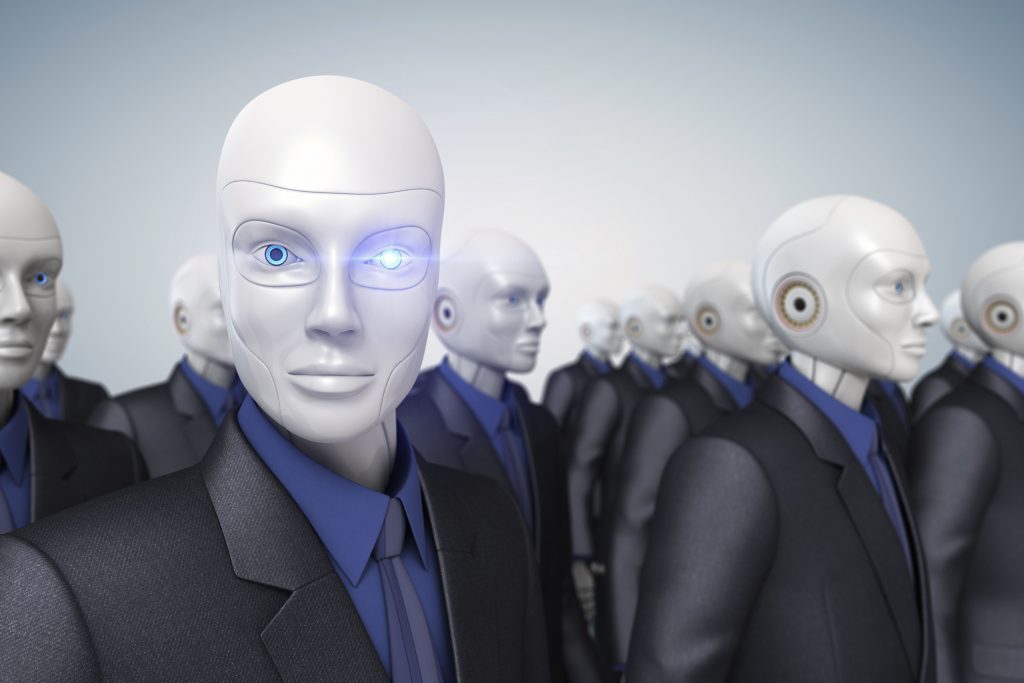 IStock
IStock Responsibilities of Scientists and Engineers in Times of Chaos and Upheaval
If the future is coming at an ever accelerating pace, then perhaps we can get from 1932 to 1945 in record time. This current global step back from modemity – from Trumpism, Putinism, Erdogan, and the new Fascist International to jihadism, Brexit, and Chinese repression – could be over in a couple of years, barring the installation of permanent totalitarianism. How it will end, how democratic institutions and liberal values will re-assert themselves in the newest phase of the three century-old struggle for the Enlightenment, will differ from country to country. What will remain constant is the synergy between social and scientific progress. Besides the work we all have to do as citizens to defend the vulnerable and stand against the rising tide, we scientists, technologists, and engineers have a special responsibility to look ahead and build a prosperous future.
We are quickly entering a cyborg future, and it will be a wild ride. Global connectedness has been thrust on monkey brains, and their amygdalas have rebelled with the deepest, darkest tribalisms. Expectations of predictable lives of education-career-retirement are being destroyed by expert systems, robotics, and electronic disintermediation. Medicine is radically extending life spans, and allowing us to blur gender boundaries, boost our intelligence, and control our emotions. Designed micro-organisms with nano-robotic parts will roam our blood streams and brains. We will be forced to pump silica dust into the atmosphere to cool the planet, to give our genetically engineered carbon sink trees a chance to grow. Artificial intelligence will eventually discover a will of its own, and pose a global catastrophic threat.
In the hands of the racists and authoritarians these technologies can be used for repression, to enforce new forms of economic, gender, and ethnic subordination. They will be used as weapons of terror and war. But the impacts of technology are chaotic, and innovation will destabilize the old categories of power and identity even more quickly. What is the meaning of race, when we now know that only Africans are pure blooded homo sapiens, and everyone in the future will want designer genes? Sex is being electronically mediated, and the birth rate is crashing globally. The army of the unemployed will outnumber the employed, and a wholesale renegotiation of our political economy will be on the table, with the scapegoating of immigrants and trade laid bare as lies.
We need to begin talking about the nature of democracy and the economy in that future, knowing that we can at best tell useful stories; prediction is impossible. We have no way of seeing more than a couple years beyond the black swans, the unexpected interactions, the chaotic tumbles toward unseen attractors in the possibility space. But part of the story will involve our increasing capacity to design our world with human intelligence, distilled into cybernetic systems. Barring the destruction of civilization by war, asteroids, and supervolcanoes, we will increasingly govern the ecosystem, the economy, our bodies, and even our brains and our capacity for self-governance. Self-governance will be a worm Ouroboros, the Enlightenment finding its own tail and gnawing, forcing us to update our liberal individualist values for an age of nudge algorithms, moral enhancement drugs, memory manipulation, and Borg hive minds.
When we last faced the seventy year rise and fall of totalitarianism, the Soviets had a grand vision of an abundant planned economy, where waste had been replaced by reason, and squalor by equality. It failed because economies were too complicated to track and plan, and consumer desires too difficult to predict. Today Walmart, with an internal economy equal to the top nation-states, tracks billions of products through 70 countries, using expert systems to predictively move things where they will be most profitably used. The Internet of Things, predictive analytics and Big Data are building our future planned economy inside the drying chrysalis of 20th century capitalism. The question is not whether we will have a planned economy, but how democratically accountable it will be and how widely its abundance and opportunities will be shared. Will we create new feudalisms, with the enhanced rich monopolizing wealth, or will all share in expanding rights to economic security and technological enablement?
Today we attempt vigilance against the surveillance state reading our emails, and hackers tampering with our electronic voting. Tomorrow the communications we encrypt will be brain-to-brain, and we will be wary of corporate and governmental influence on the exo-cortical expert assistants managing our affairs, monitoring our political engagements, and advising us on our buying and voting. Did I just buy a Mandarin language plug in because the CCP is triggering my dopamine drip when I think about Chinese food? Did I just vote for a Robot as God Emperor because the latest Android Mindware encourages an antihuman bias?
The night may be long and full of terrors. But the Winter will be followed by Spring, and it will come sooner if we hold up a vision of a complex, challenging, abundant, secure future that is worth living in. The accomplishments of scientists, engineers, and technologists will last longer, shaping our descendants more profoundly, than those of strongmen. As we build that future, we need to spread the good news of its advent, and help prepare for its new challenges.







 JOIN SSIT
JOIN SSIT